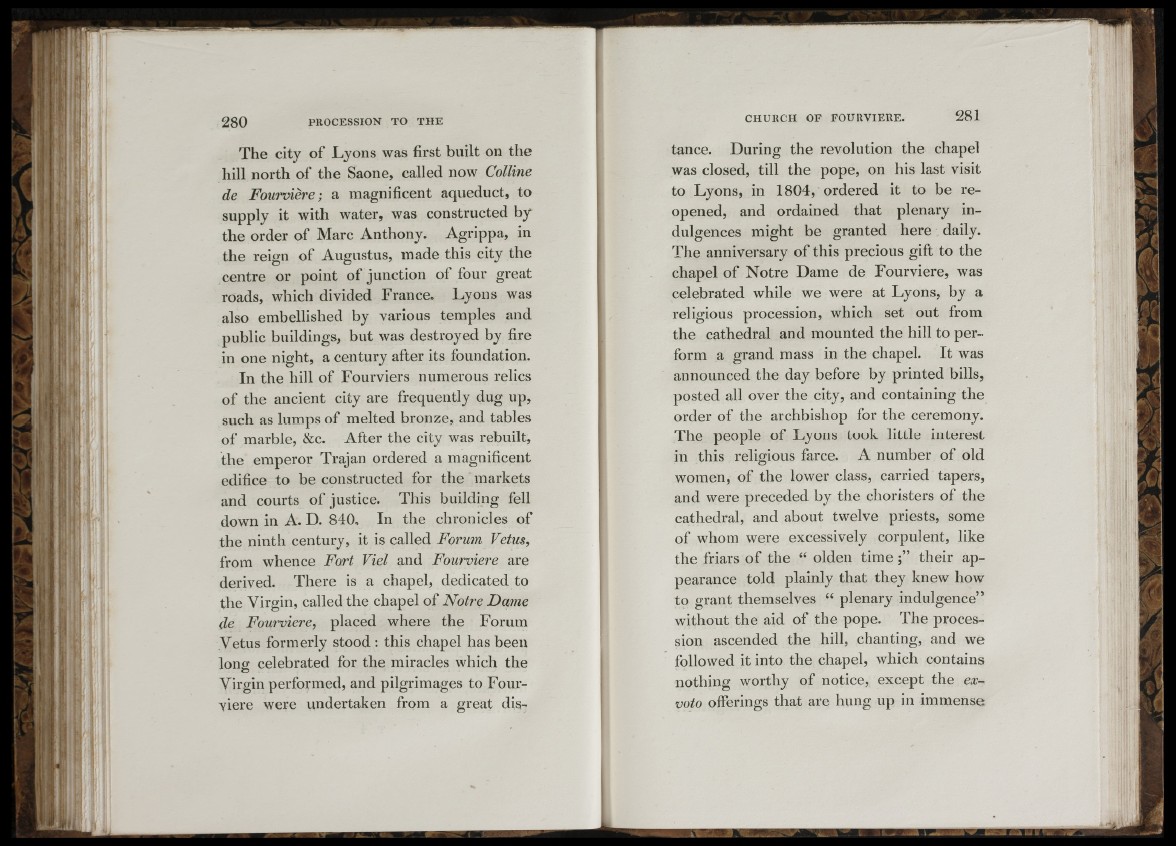
11
!!
■
■^m N- i
& I? i If
The city of Lyons was first built on the
hill north of the Saone, called now Colline
de Fourviere', a magnificent aqueduct, to
supply it with water, was constructed by
the order of Marc Anthony. Agrippa, in
the reign of Augustus, made this city the
centre or point of junction of four great
roads, which divided France. Lyons was
also embellished by various temples and
public buildings, but was destroyed by fire
in one night, a century after its foundation.
In the hill of Fourviers numerous relics
of the ancient city are frequently dug up,
such as lumps o f melted bronze, and tables
of marble, &c. After the city was rebuilt,
the emperor Trajan ordered a magnificent
edifice to be constructed for the markets
and courts of justice. This building fell
down in A. D. 840, In the chronicles of
the ninth century, it is called Forum. Vetus,
from whence Fort Viel and Fourviere are
derived. There is a chapel, dedicated to
the Virgin, called the chapel of Notre Dame
de Fourviere, placed where the Forum
Vetus formerly stood : this chapel has been
long celebrated for the miracles which the
Virgin performed, and pilgrimages to Four-
viere were undertaken from a great distance.
During the revolution the chapel
was closed, till the pope, on his last visit
to Lyons, in 1804, ordered it to be reopened,
and ordained that plenary indulgences
might be granted here daily.
The anniversary of this precious gift to the
chapel of Notre Dame de Fourviere, was
celebrated while we were at Lyons, by a
religious procession, which set out from
the cathedral and mounted the hill to perform
a grand mass in the chapel. It was
announced the day before by printed bills,
posted all over the city, and containing the
order of the archbishop for the ceremony.
The people of Lyons took little interest
in this religious farce. A number of old
women, of the lower class, carried tapers,
and were preceded by the choristers of the
cathedral, and about twelve priests, some
of whom were excessively corpulent, like
the friars o f the “ olden time their appearance
told plainly that they knew how
to grant themselves “ plenary indulgence”
without the aid of the pope. The procession
ascended the hill, chanting, and we
followed it into the chapel, which contains
nothing worthy of notice, except the ex-
voto offerings that are hung up in immense
■ \